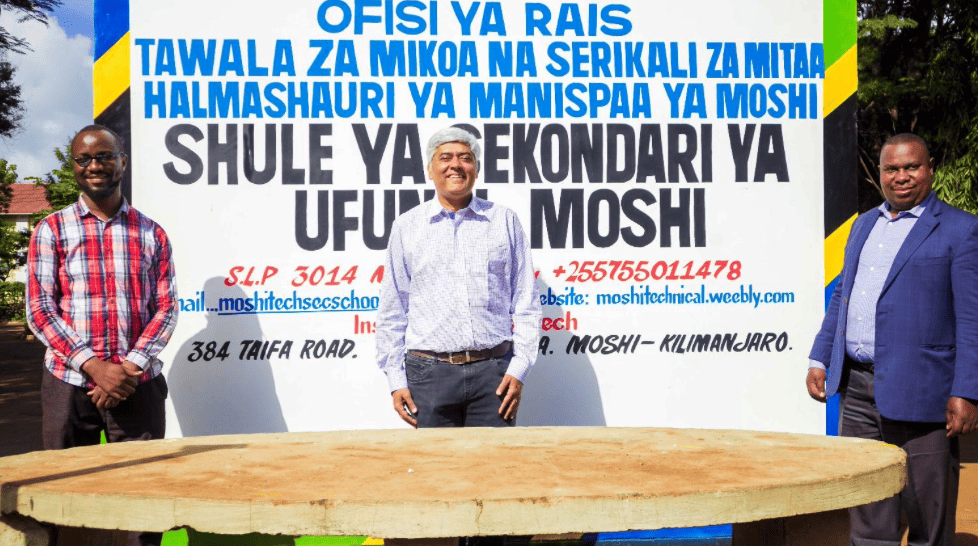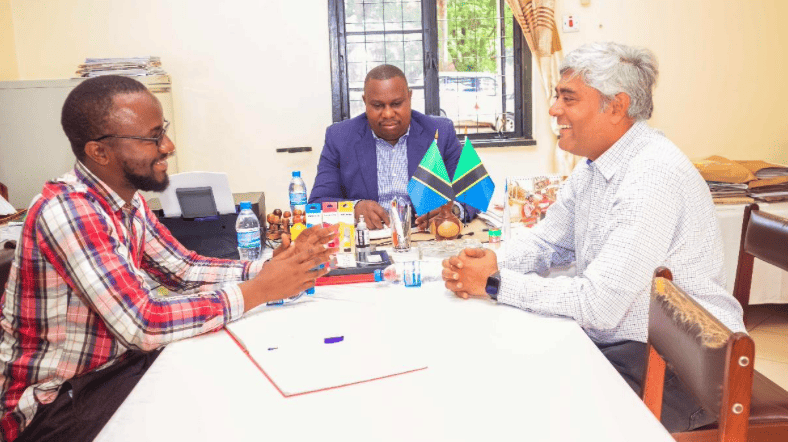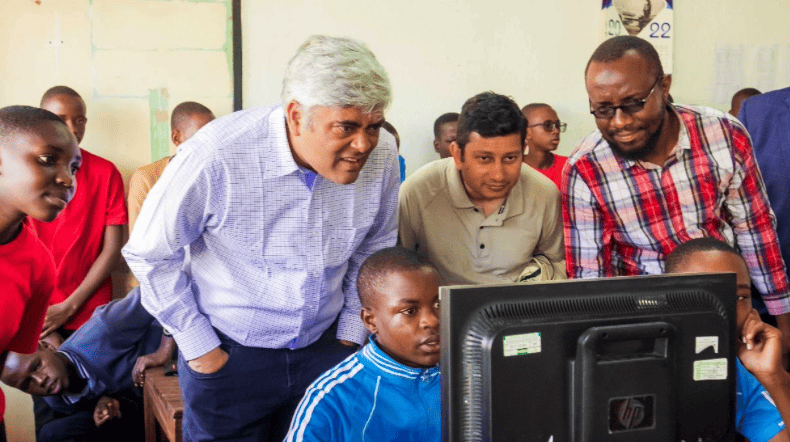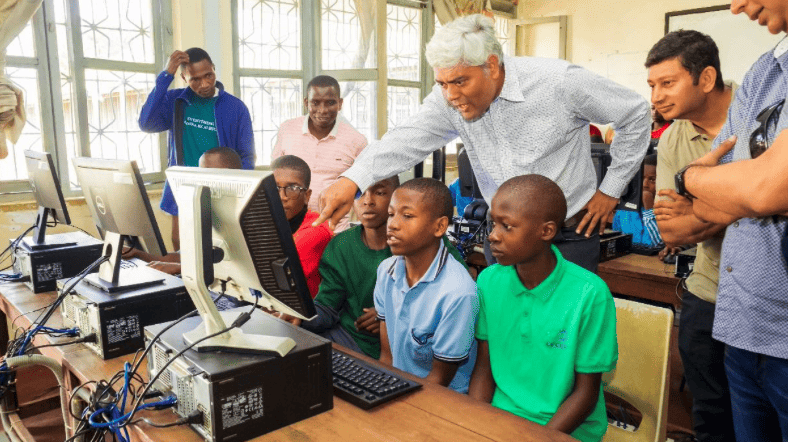
The chief executive and co-founder of Automation Anywhere, Mihir Shukla, recently visited Moshi Technical School in Shirimatunda, Tanzania. Automation Anywhere develops intelligent automation software used by businesses worldwide. They have been donating their end-of-life and surplus IT equipment to Camara for use in our school projects, and Mihir was eager to see the end result.
School Principal Mr. Philipo Mwanga gave the visiting group – which included colleagues of Mihir who had just summited nearby Mt Kilimanjaro with him, as well as Camara Tanzania Country Director Dayani Mbowe – a tour of the school and its facilities. He summarised the school’s history and their longstanding collaboration with Camara, highlighting the numerous benefits they have experienced through the provision of training, technical support and computers. Mr. Philipo emphasized that, as a technical school, they face limitations in acquiring all the necessary machinery for students to learn from. However, by utilizing computers in their laboratory, they have been able to employ simulations and demonstrate a wide range of machines, effectively showcasing their functionalities to the students.
Outside the computer lab, an enthusiastic assembly of over 50 students and ICT teachers greeted Mr. Shukla with a rousing school song. In response, Mihir shared a brief personal history, recounting his humble upbringing in a small town in India, where access to computers was a luxury he did not have until college. Undeterred by this limitation, he went on to found a succession of successful tech companies: he emphasized to the students his firm belief that talent is universally distributed, but opportunities are not. He imparted a message of possibility and empowerment insisting that everything is achievable. Furthermore, he highlighted the role of Automation Anywhere in supporting Camara’s mission, ensuring that more students can gain access to technology and enhance their life prospects.
Inside the lab, students showcased a diverse range of the computer applications they have been working on. They displayed their skills in coding and programming, demonstrated the use of a moon atlas for studying astronomy and explained how computers aided their learning about the African continent, utilizing maps as part of their civics subject. They also highlighted their use of an English-Swahili dictionary to expand their vocabulary in English and demonstrated report generation on Microsoft Excel.
Mihir commented “Seeing the students’ excitement as they demonstrated their coding and automation projects was incredible. Hearing them speak enthusiastically about learning new skills and sensing their optimism about building a better future was truly uplifting. This trip reinforced that rural communities across the globe persevere and thrive despite everyday challenges. Let us support young people pursuing education and technology to unlock their potential. Together we can empower emerging generations to create positive change.”



